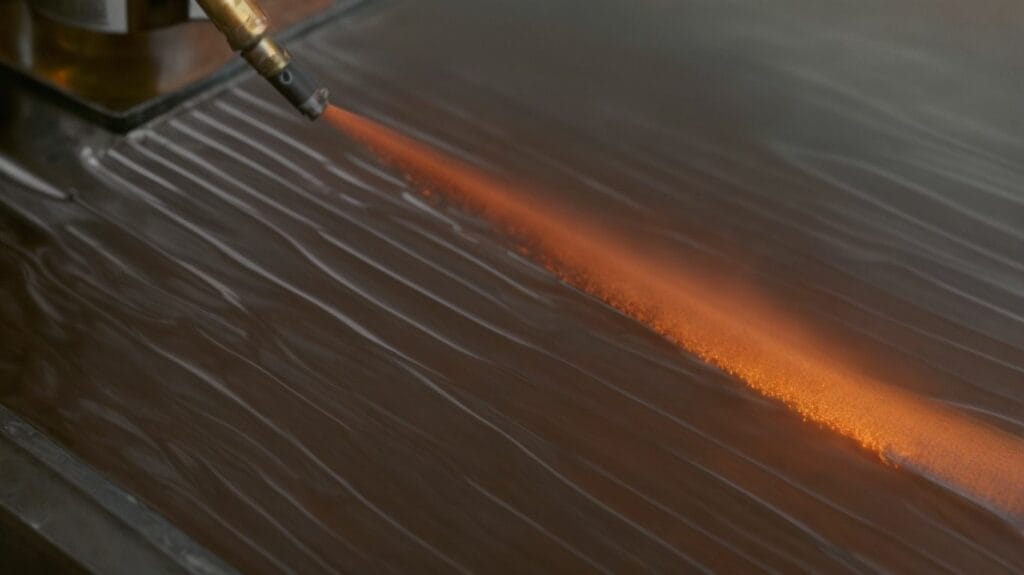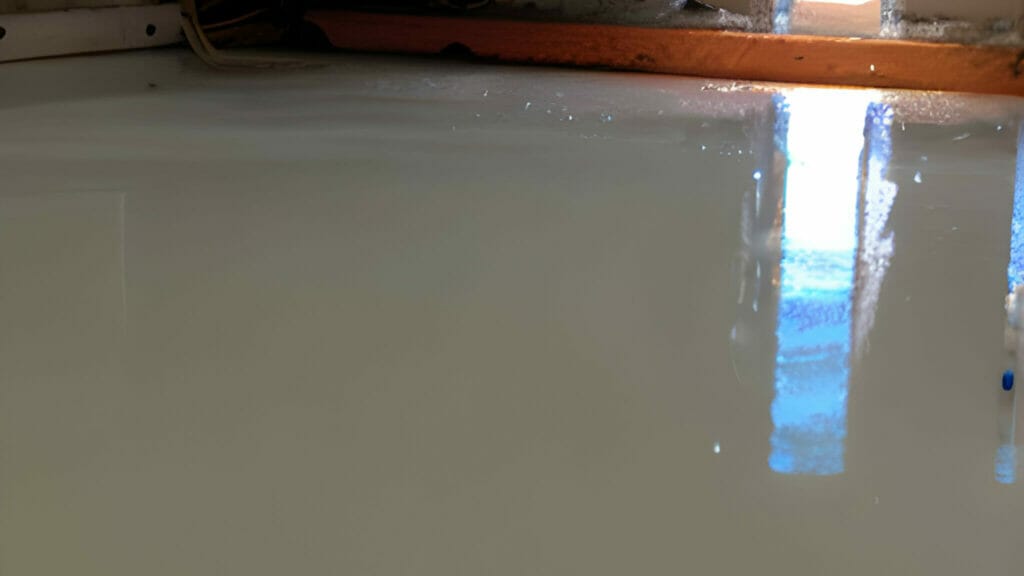Epoxy resin is a type of thermosetting polymer that is created by mixing two components – a resin and a hardener. When the two components are combined, a chemical reaction occurs, resulting in a hard and rigid material with excellent heat resistance properties. This makes epoxy resin a popular choice in various industries and applications.
The chemical makeup of epoxy resin is what gives it its heat-resistant properties. The resin is made up of long chains of molecules that are cross-linked with the help of the hardener, forming a strong and durable material. This cross-linking allows epoxy resin to withstand high temperatures without melting or losing its shape.
The temperature range for epoxy resin can vary depending on the specific type and brand, but generally, it can withstand temperatures of up to 300°F (149°C). This makes it suitable for use in high-temperature applications such as industrial equipment, automotive parts, and electronics.
Heat-resistant epoxy resin is widely used in various industries such as aerospace, construction, and electronics. It is commonly used as a coating or adhesive for metal, concrete, and wood. It is also used in electrical and electronics applications as it has excellent electrical insulation properties.
There are several benefits to using heat-resistant epoxy resin. Firstly, its durability allows it to withstand high temperatures without cracking or melting, which in turn increases the lifespan of the product or equipment it is used on. Additionally, using heat-resistant epoxy resin can also result in cost savings as it reduces the need for frequent repairs or replacements.
However, there are limitations to the heat resistance of epoxy resin. While it can withstand high temperatures, it is important to note that exceeding the recommended temperature range can cause the resin to soften or deform. Precautions should also be taken when using heat-resistant epoxy resin, such as wearing protective gear and ensuring proper ventilation. With proper handling and usage, heat-resistant epoxy resin can be a valuable asset in various industries and applications.
Key Takeaways:
- Epoxy resin is a strong and durable material that is commonly used in various industries for its heat resistance properties.
- The chemical makeup of epoxy resin and its temperature range make it highly heat resistant.
- Using heat-resistant epoxy resin can improve durability, save costs, and prolong the lifespan of products.
What is Epoxy Resin?
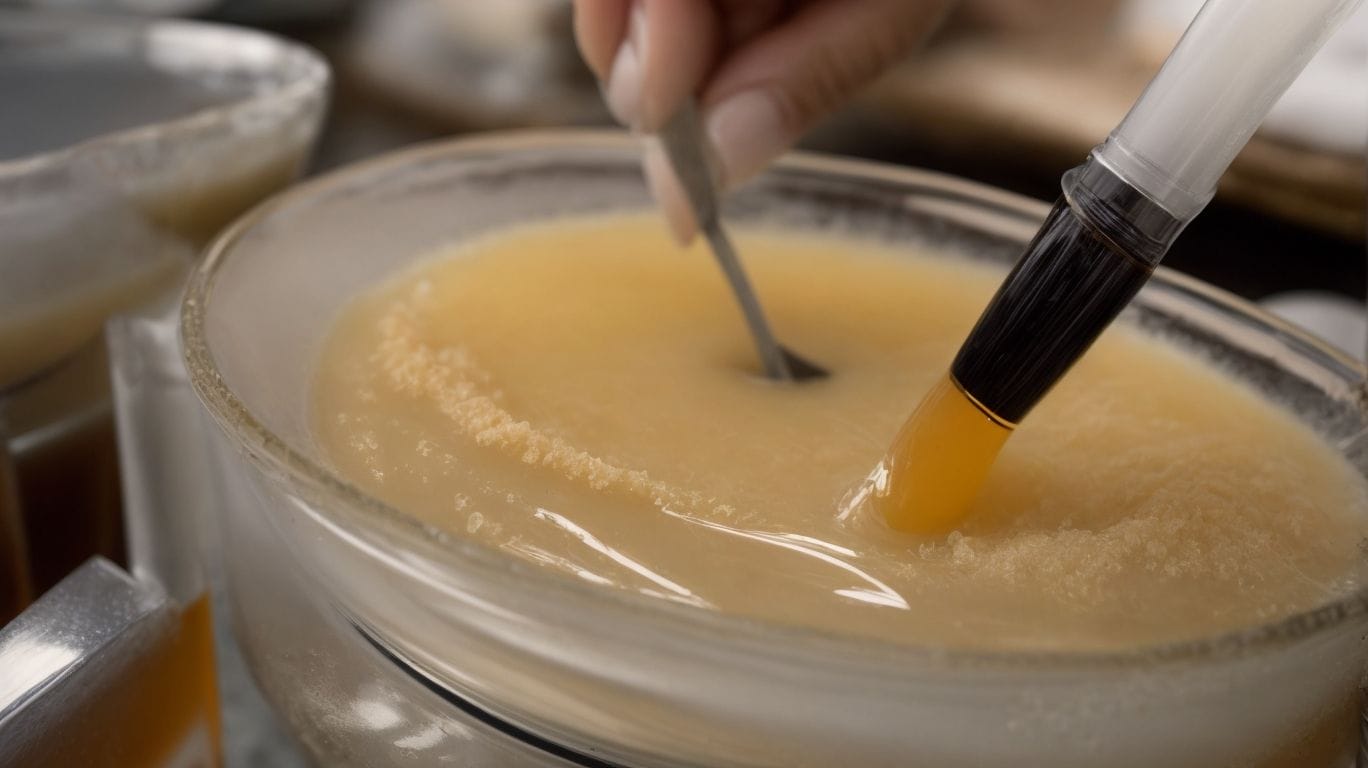
Photo Credits: Diyepoxyresin.Com by Mark Hall
Epoxy resin is a versatile synthetic resin used in various applications such as adhesives, coatings, and composite materials. It is created through the combination of epoxide compounds with a curing agent, resulting in a durable, heat-resistant, and rigid material. Epoxy resin is known for its strong adhesive properties, making it suitable for bonding different materials together. It is also valued for its resistance to chemicals and electrical insulating properties.
A friend of mine, who is an artist, utilized epoxy resin to create stunning pieces of artwork. The resin’s ability to preserve colors and provide a glossy finish elevated the appeal of the artwork, ultimately gaining recognition at an art exhibition.
How is Epoxy Resin Used?

Photo Credits: Diyepoxyresin.Com by Kenneth Gonzalez
- Prepare the work area: Ensure a clean, well-ventilated space.
- Mix the epoxy resin: Follow the manufacturer’s instructions for precise measurements.
- Apply the resin: Use a brush or roller to coat the surface evenly.
- Curing: Allow the epoxy resin to cure for the specified time.
Pro-tip: Before using epoxy resin, make sure that the surfaces are clean and free of dust for the best adhesion.
What Makes Epoxy Resin Heat Resistant?
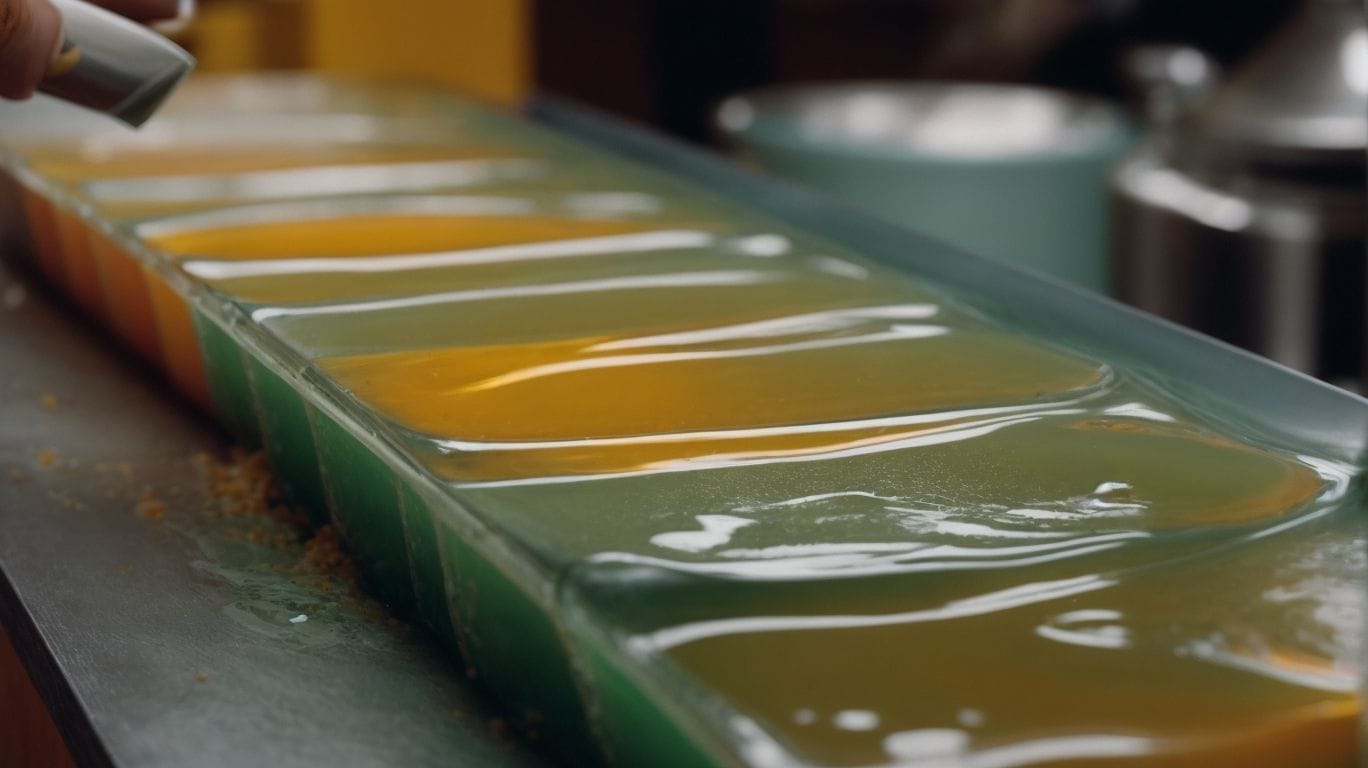
Photo Credits: Diyepoxyresin.Com by Bobby Perez
What Makes Epoxy Resin Heat Resistant?
Epoxy resin possesses heat resistance due to its unique chemical structure and curing process. The formation of a cross-linked polymer structure during curing is what gives epoxy resin its ability to withstand high temperatures. Furthermore, the inclusion of additives like hardeners in epoxy resins can further enhance their heat resistance. To maximize the heat resistance of epoxy resin, it is important to ensure proper curing and use suitable additives. For applications that require exceptional heat resistance, it may be beneficial to use epoxy resin with a high glass transition temperature.
What is the Chemical Makeup of Epoxy Resin?
Epoxy resin is made up of two primary ingredients: epoxide, which is a highly reactive molecule, and polyamine, which serves as a hardener. When these two components are mixed, a chemical reaction takes place, resulting in a robust and long-lasting material with exceptional adhesive properties.
An acclaimed artist utilized epoxy resin in their sculptures, captivated by its adaptability and resilience. This material gave them the ability to craft intricate pieces that withstood the test of time, showcasing the chemical composition of epoxy resin creatively.
What is the Temperature Range for Epoxy Resin?
The temperature range for epoxy resin typically falls between 50 to 120 degrees Celsius, making it suitable for a variety of applications, including coatings, adhesives, and composite materials. This wide range allows the epoxy resin to withstand moderately high temperatures, making it a versatile choice for use in various industries as well as for art and craft projects.
What are the Applications of Heat Resistant Epoxy Resin?
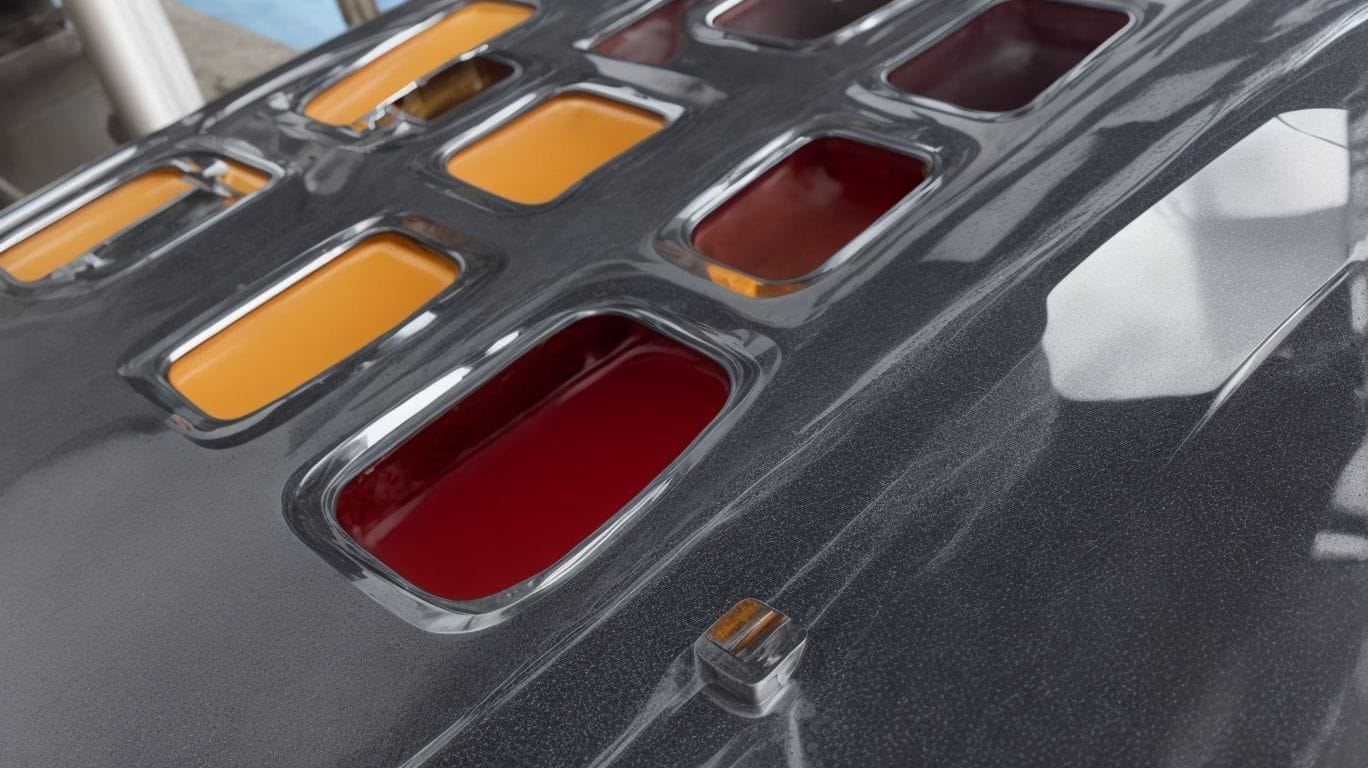
Photo Credits: Diyepoxyresin.Com by Willie Garcia
Heat-resistant epoxy resin has a wide range of applications in industries such as aerospace, automotive, electronics, and construction. It is commonly used for coating and protecting electronic components, creating composite materials for aircraft and spacecraft, manufacturing automotive parts, and as an adhesive in construction.
For safety purposes, it is important to ensure proper ventilation and use protective equipment before handling heat-resistant epoxy resin to prevent inhalation or skin contact.
What Industries Use Heat Resistant Epoxy Resin?
Heat-resistant epoxy resin is utilized by various industries for a variety of applications, including:
- Aerospace: It is crucial for manufacturing aircraft components, as it can withstand high temperatures during flight.
- Electronics: This type of resin is commonly used for encapsulating and insulating electronic components due to its resistance to heat.
- Automotive: In the production of automotive parts, heat-resistant epoxy resin is employed to ensure durability under high-temperature conditions.
- Construction: This type of resin is also utilized for high-temperature-resistant coatings and adhesives in construction materials and structures.
What Products Use Heat Resistant Epoxy Resin?
Heat-resistant epoxy resin is utilized in a variety of industries and products, including:
- aerospace components
- automotive parts
- electronic devices
- industrial equipment
- marine applications
- high-performance sporting goods
It is also commonly used in the production of:
- electrical insulators
- composite materials
- protective coatings
- adhesives designed for extreme temperature environments
What are the Benefits of Using Heat Resistant Epoxy Resin?
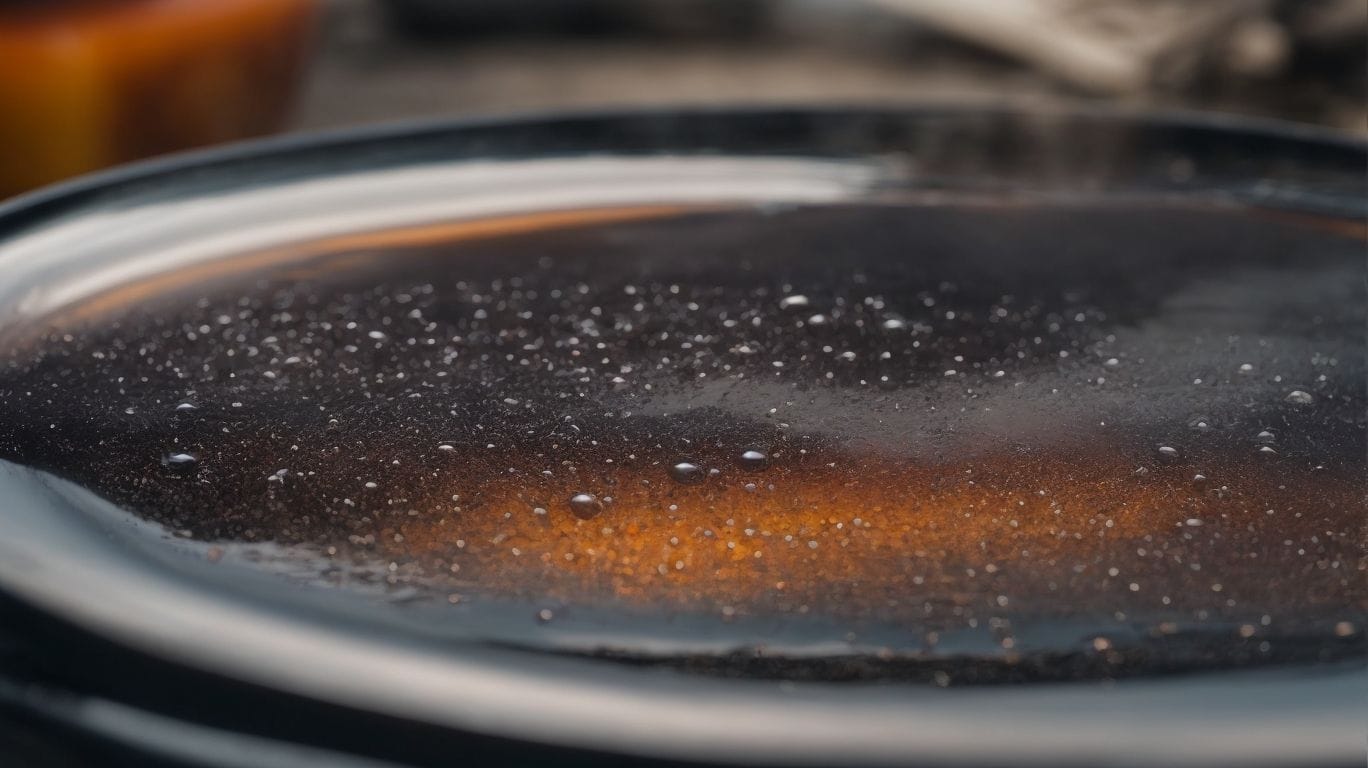
Photo Credits: Diyepoxyresin.Com by Tyler Ramirez
The use of heat-resistant epoxy resin provides a multitude of advantages:
- Protection: It acts as a shield, protecting surfaces from damage caused by high temperatures.
- Durability: This type of resin can withstand extreme heat, making it an ideal choice for industrial and automotive applications.
- Versatility: It can be adapted for various projects, including electronic encapsulation and mold making.
- Creative Possibilities: Heat-resistant epoxy resin opens up a world of possibilities, allowing for the creation of coatings, decorative items, and functional objects that can withstand high temperatures.
How Does Heat Resistance Improve Durability?
- Enhanced Strength: The heat resistance of epoxy resin prevents softening or weakening, ensuring the durability of products and components even under high temperatures.
- Chemical Stability: Epoxy resin with heat-resistant properties maintains its structural integrity, resisting corrosion and degradation in harsh environments.
- Extended Lifespan: By withstanding heat, epoxy resin prolongs the lifespan of products and components, reducing the need for frequent replacements and improving durability.
- Reduced Maintenance: The durability achieved through heat resistance minimizes maintenance and repair costs, providing long-term cost savings and improved durability.
What are the Cost Savings of Using Heat Resistant Epoxy Resin?
The use of heat-resistant epoxy resin can result in significant cost savings due to reduced maintenance expenses and longer equipment lifespan. Its ability to withstand high temperatures reduces the need for frequent replacements, saving on material and labor costs. Moreover, its durability minimizes downtime for repairs, leading to increased productivity and profitability.
Are There Any Limitations to Heat Resistant Epoxy Resin?
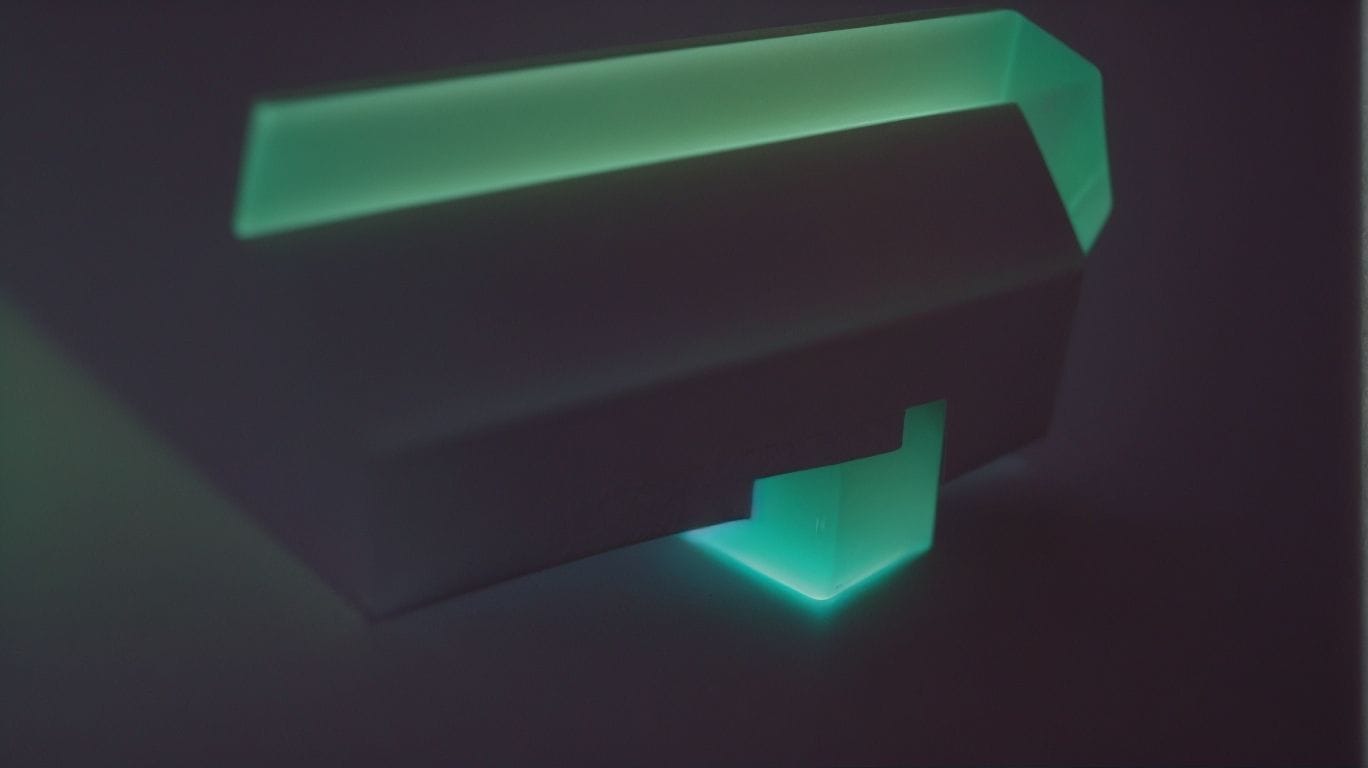
Photo Credits: Diyepoxyresin.Com by Michael Adams
Yes, there are limitations to heat-resistant epoxy resin. While epoxy resin is generally heat resistant, it has its limitations. Continuous exposure to high temperatures can result in discoloration, loss of clarity, and eventual degradation. Therefore, epoxy resin is most suitable for indoor use or applications where it will not be subjected to extreme heat for extended periods.
What Temperature Range is Considered Safe for Epoxy Resin?
The safe temperature range for epoxy resin is typically between 75°F and 85°F (24°C to 29°C), which is considered optimal for proper curing and maintaining structural integrity.
How Can Heat Damage Epoxy Resin?
- High temperatures: Prolonged exposure to temperatures exceeding the safe range can cause damage to epoxy resin, including softening, deformation, or melting.
- Rapid temperature changes: Sudden shifts in temperature can result in thermal shock, potentially leading to cracks or delamination of the resin.
- Chemical reactions: Heat can accelerate chemical reactions, which can cause yellowing, discoloration, or degradation of the resin.
What Precautions Should be Taken When Using Heat Resistant Epoxy Resin?
When working with heat-resistant epoxy resin, it is crucial to take the necessary precautions to ensure both safety and optimal results. It is recommended to wear protective gear, such as gloves and safety goggles, to prevent any skin or eye irritation. It is also important to work in a well-ventilated area or use a respirator to avoid inhaling any fumes. Following the manufacturer’s instructions for mixing and application is essential in achieving the desired level of heat resistance. Additionally, it is important to use the resin within the recommended temperature range to ensure safe and effective results.
How is Heat Resistant Epoxy Resin Tested?
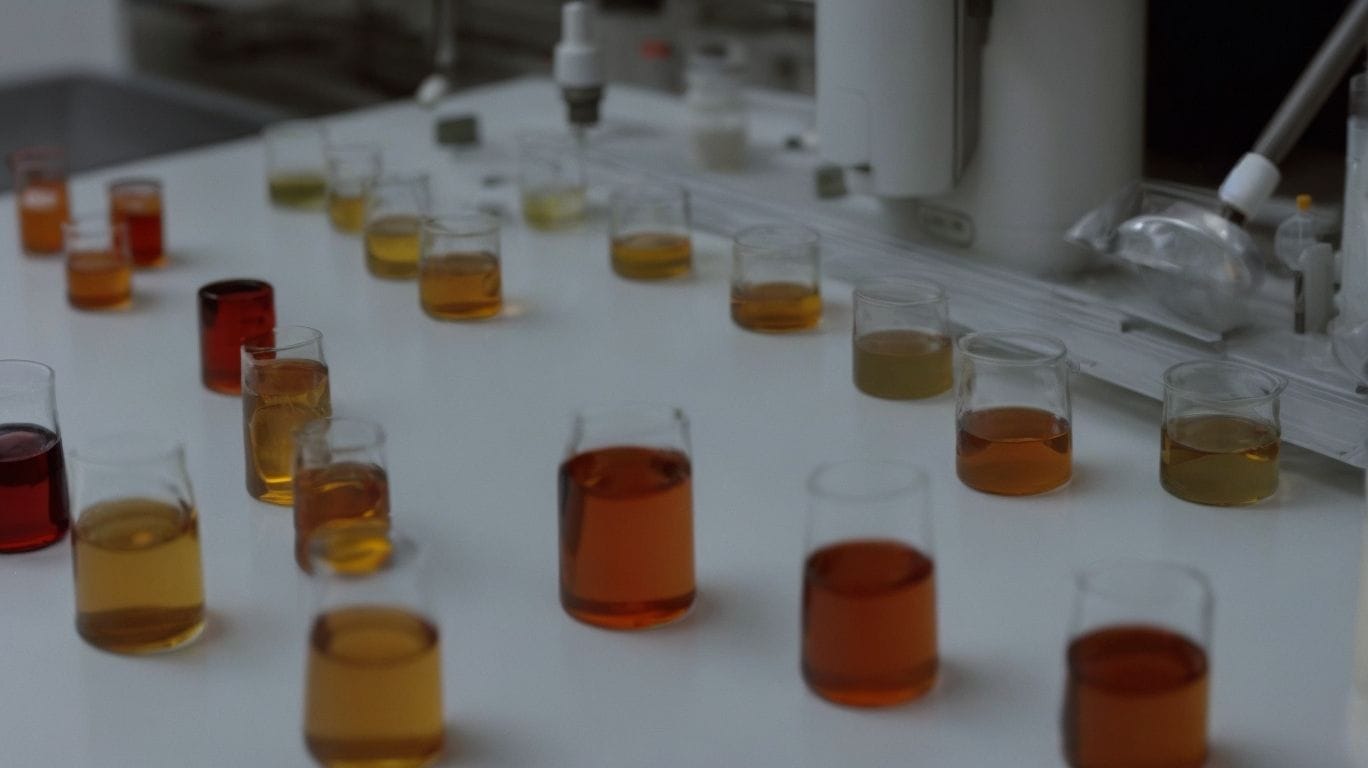
Photo Credits: Diyepoxyresin.Com by Nicholas Jackson
- Initial preparation: The epoxy resin samples are thoroughly cleaned and prepared for testing.
- Temperature exposure: The samples are then exposed to a range of temperatures, typically between 50 and 200 degrees Celsius, to assess their heat resistance.
- Measurement of properties: The impact of heat on the epoxy resin’s mechanical, chemical, and physical properties is carefully evaluated, including any changes in strength, flexibility, and appearance.
- Comparison: The test results are compared to industry standards and the intended applications of the resin to determine its suitability for heat-resistant purposes.
What are the Top 10 Applications of Heat Resistant Epoxy Resin?

Photo Credits: Diyepoxyresin.Com by Kenneth Taylor
Heat-resistant epoxy resin has a wide range of applications in various industries thanks to its ability to withstand high temperatures and harsh conditions. Here are the top 10 applications of this durable resin:
- Coating and sealing aerospace components
- Providing electrical insulation for electronic devices
- Protecting industrial equipment with its durable coating
- Serving as an adhesive for automotive components
- Creating high-temperature resistant composites for marine vessels
- Applying surface coatings for kitchen countertops and flooring
- Providing protective coatings for oil and gas pipelines
- Bonding construction materials with its heat-resistant properties
- Coating chemical processing equipment for durability
- Creating high-temperature resistant adhesives for medical devices
What are the Benefits of Using Heat Resistant Epoxy Resin for Home Art and Craft Projects?

Photo Credits: Diyepoxyresin.Com by Christian Harris
Using heat-resistant epoxy resin for home art and craft projects offers several benefits:
- Temperature durability: It can withstand high temperatures, making it the perfect choice for crafting items such as coasters, trivets, and other heat-exposed crafts.
- Enhanced protection: This type of resin provides a protective layer that helps preserve artwork from heat damage.
- Longevity: It ensures long-lasting quality, preventing warping or melting of resin art due to exposure to heat.
